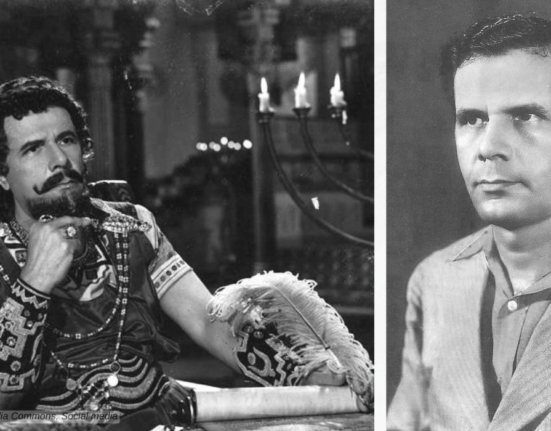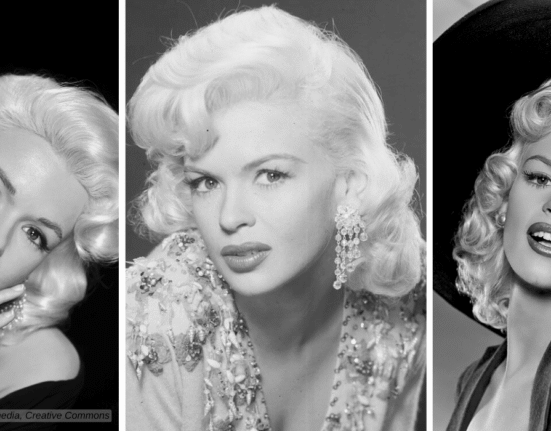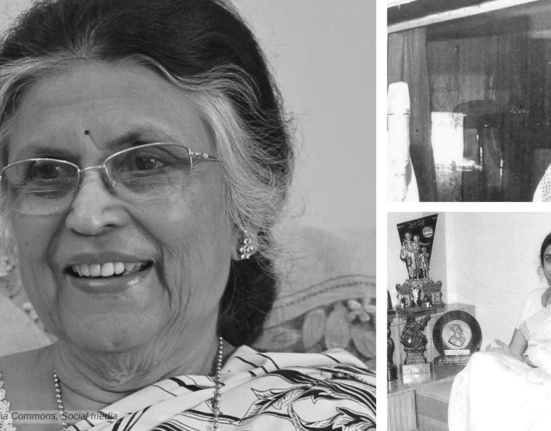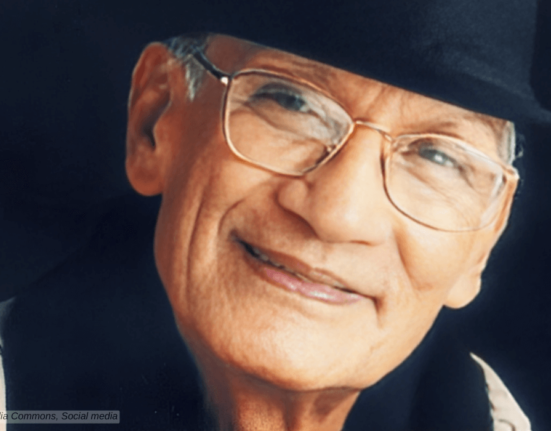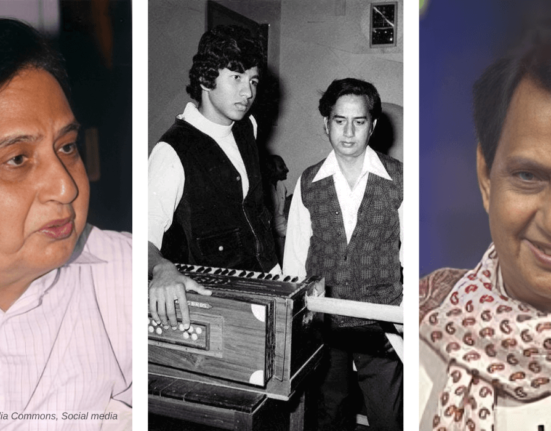On a Sunday afternoon, I accidentally came across a film while surfing channels that looked very interesting. I started to watch it. My father came into the room and asked what I was watching. I told him the name of the film. He laughed and told me, to my astonishment, that his friends had gone to watch it when it was released, and it was a big flop. There were reports that in a few places the crowd found it so boring and slow that they started breaking the chairs in the theatre, the show had to stop, and the police were called.
I was shocked because the film I was watching was fine, engaging, and very grounded. The performances are really good, and the mesmerising music consists of gem after gem. The story was beyond beautiful—a tale of human relationships, cultural clashes, class differences, and unrealised love in a rural setting.
when an unknown printer took a galley of type and scrambled it to make a type area specimen book It has survived not only five centuries.but also the leap introduce electronic typesetting, remaining essentially unchanged.
Willum Skeener
The film was “Teesri Kasam,” the Swan song of Shailendra, his life’s ambition, and the only movie he produced. Perhaps in an effort to elevate the literary quality of Hindi cinema, Shailendra collaborated with litterateur Phanishwar Nath Renu for the film. Renu contributed the story and dialogue with Nabendu Ghosh, drawing inspiration from Renu’s 1954 short story titled “Maare Gaye Gulfam.”
The story revolves around Hiraman (played by Raj Kapoor), a simple bullock cart driver from a remote village in Bihar. After nearly getting arrested for smuggling contraband, Hiraman makes two vows: never to assist black marketeers and never to transport bamboo again. These vows shape his life and lead him on an unexpected journey.

One day, Hiraman is asked to transport Hirabai (played by Waheeda Rehman), a nautanki dancer, to a distant village fair. As they travel together for over forty hours, a bond of friendship forms between them. Hiraman’s innocence and unsophisticated perception of life charm Hirabai, while she mesmerises him with her beauty and honesty.
Teesri Kasam delves into the world of Hiraman and Hirabai, two people from very different backgrounds. Their interactions reveal the stark contrast between traditional values and modernity. The initial infatuation and love between them come crashing down when the reality of Hirabai comes into play.
Hiraman was heartbroken when Hirabai scolded him for quarrelling with a leering spectator, and Hearabai’s dreams collapsed when someone reminded her, “Laila ka path karne wali, Laila banne chali thi… hai na anhoni aat,” ending her ‘delusion’ that she could be something more than just a nautanki performer. So, inevitably, she leaves, and Hiraman takes his “Teesri Kasam”—never to ferry another passenger from the nautanki company.
A cinematic gem directed by Basu Bhattacharya, the film also explores themes of purity, love, and societal perceptions. He captures the rustic beauty of the countryside, making it an integral part of the story. Subrata Mitra’s cinematography captures the simplicity of rural life while highlighting the characters’ emotions.
The music by Shankar-Jaikishan is a high point of the film; the film’s soulful soundtrack and philosophical songs like “Duniya Banane Wale,” “Sajan re Jhooth mat bolo,” “Sajanwa Bairi Ho Gaye Hamaar,” “Chalat Musafir,” “Laali Laali Doliya Me Laali re Dulahniya,” and “Paan Khaaye Saiyaan Hamaaro” by Shailandra and Hasrat Jaipuri add to the narrative and emotional depth of the film.
The film perhaps has its best performance from Raj Kapoor, much in line with “Jaagte Raho,” another classic of Raj Kapoor. His portrayal of Hiraman is sincere, touching, and memorable. His performance reflects Hiraman’s sincerity, fear, love, and ultimate realization. Waheeda Rahman played the now iconic character of Hirabai with great dignity, grace, and emotional availability.
The film was released a few months prior to the death of Shailendra and flopped badly. People of that time hated it so much that in a number of cinemas, they broke chairs and left midway. The magician of the words was penniless and in debt due to problems that arose during the filming of Teesri Kasam. Apparently, due to various reasons, like the creative differences between Raj Kapoor and Basu Bhattacharya, the movie got delayed and the budget got out of hand. Many people doubted the clash story between Raj ji and the director. It is now widely reported in the media that Raj Kapoor only charged a token amount of one rupee for the movie, but a lot of older reports say otherwise.


“Teesri Kasam,” now considered to be one of the greatest movies of all time, won the National Award for Best Feature Film in 1967. But Shailendra was no more. It was reported in the media that his wife somehow managed to go to Delhi for the ceremony at Rashtrapati Bhavan, but when she comes out of Rashtrapati Bhavan after receiving the award on Shailendra’s behalf, she does not have the money for an autorickshaw. People saw her waiting for the bus to go to the railway station. This story is not confirmed by the people involved and is doubted by many as fabricated by the media.
Shailendra Ji’s daughter, “Amla ji,” denied all the stories involving conflict between Raj Kapoor and Basu Bhattcharya and almost angerly refuted the story of her mother not having money for autorickshaw fare. She clarified that her mother, along with Raj Kapoor and her brother Shaily Shailendra, went to receive the National Awrad; it was a state visit arranged by the government. It is rubbish to even think about it as reported.
That was the end of one of the most successful and celebrated lyricists of all time, whose songs have immortalised so many movies, the philosopher who teaches the value of truth—”Sajan re jhooth mat bolo, khuda ke paas jaana hai.” and karma—”Bhalaa kije bhalaa hoga, bura kije bura hoga”—died alone and unhappy.




